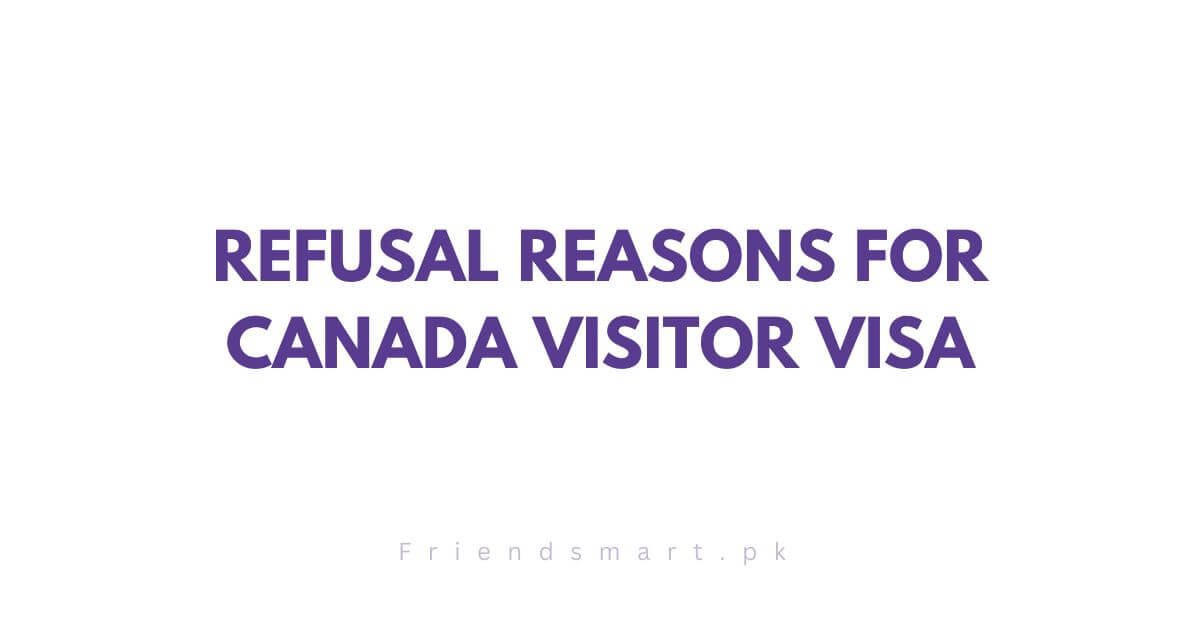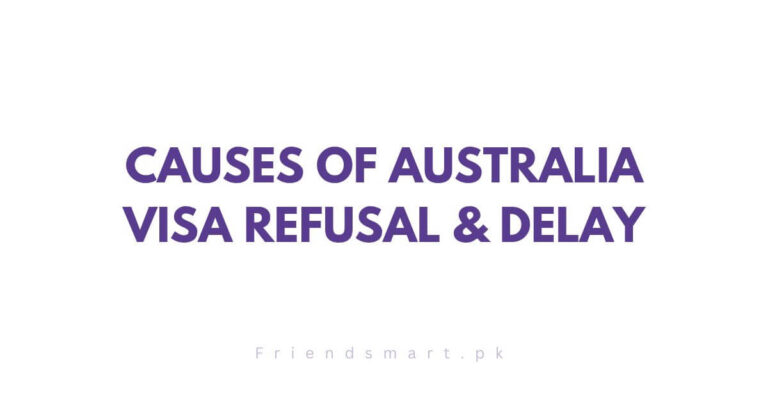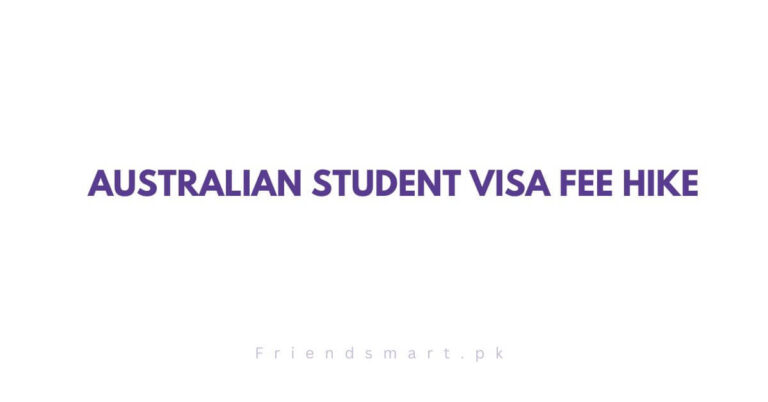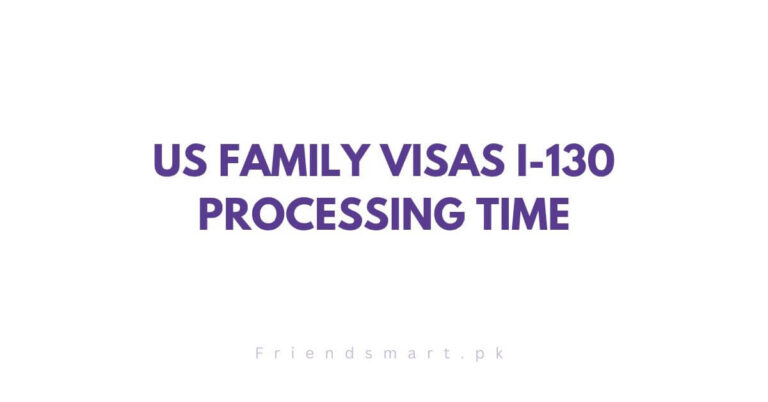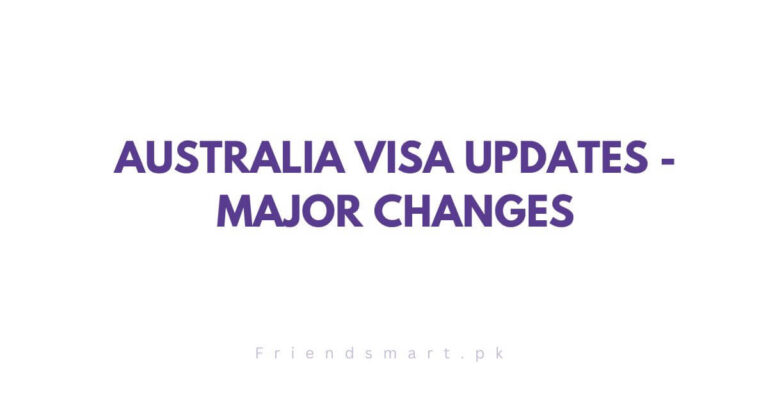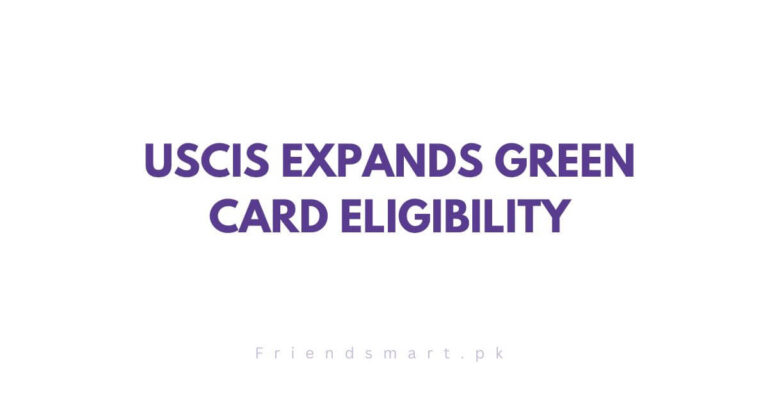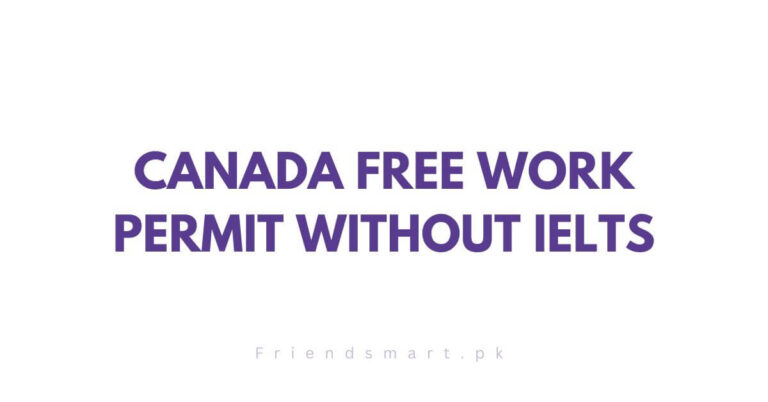Refusal Reasons for Canada Visitor Visa 2024 – Check Here
It is unsurprising that thousands of people apply for visitor or tourist visas to Canada annually, given the country’s breathtaking landscapes, thriving metropolises, abundant cultural legacy, and travel-friendly environment. The most advantageous aspect of a tourist or visitation visa is that it can be obtained for $100 by submitting an application through the IRCC and does not necessitate evidence of English or French proficiency.
Additionally, after entering the country, travelers to Canada may apply for a work permit until February 2025. Although the allure of the Great White North or the desire to visit family in Canada may be appealing, the process of acquiring a visiting or tourist visa for Canada can be difficult, with numerous applications being denied for a variety of reasons.
Check Also: Canada Visitor Visa Processing 2024 – Visit Here
Detailed below is a list of the top ten reasons for Canada visitor visa denials, which will assist prospective tourists and visitors in comprehending these challenges.
Refusal Reasons for Canada Visitor Visa
1. Incomplete or Inaccurate Application Forms
One prevalent factor leading to the denial of a visa application is an incomplete or inaccurate application. Inaccurate or absent information may result in postponements or complete rejection. To avoid this, candidates must thoroughly review the application instructions and fill out each field with accurate and complete information.
2. Insufficient supporting documentation
Visa denials are frequently triggered by insufficient supporting documentation. Applicants are required to furnish supporting documentation, including letters of employment, property ownership, or familial ties, that establishes their desire to repatriate to their country of origin.
Furthermore, it is imperative to have financial documentation that certifies the ability to cover travel expenditures. Ensure that you submit the following documentary evidence in support of your application, contingent on your circumstances:
- Travel history
- Letter of Invitation
- Proof of the relationship.
- Family information
- Itinerary
- Account Statement
The visa application could be denied if the necessary supporting documentation is not submitted, raising doubts about the applicant’s intentions.
3. Inadequate Financial Resources
Demonstrating sufficient financial resources to cover the costs of the trip is a prerequisite for visa approval. Applicants must provide sufficient funds to cover the cost of their stay in Canada, as evidenced by letters of sponsorship, bank statements, or income tax returns.
The denial of the visa application may result from immigration officers having reasonable grounds to doubt the applicant’s ability to support themselves during their stay in the country, if substantial evidence of their financial stability is not submitted.
4. Lack of Travel History or Purpose
The adequacy of applicants for a visiting visa is assessed by immigration officials in light of their previous travel experiences and intended purpose. Uncertain intentions or an absence of previous international travel to Canada may result in a denial.
Applicants who are traveling to Canada for any purpose—business, pleasure, or to visit family and friends—should provide evidence to support their claims and provide detailed objectives statements.
5. Incomplete or Unconvincing Travel Itinerary
Visa denials can also occur due to poorly constructed or unfinished travel itineraries. A comprehensive itinerary should be provided, detailing the activities and accommodations that the applicants intend to partake in during their sojourn in Canada. Supplementary documentation such as confirmed hotel reservations, airline tickets, and vacation itineraries could bolster the application and genuinely showcase the candidate’s intention to visit Canada for leisure purposes.
Furthermore, when applying for a guest visa with the intention of visiting family and friends, you are required to include a valid invitation letter from them along with your application.
6. Failure to Demonstrate Strong Ties to Home Country
In assessing the probability that visitors will return to Canada, immigration officers consider factors such as employment status, property ownership, and familial responsibilities. In the absence of evidence of ties to the country of origin, visa denials may result from inquiries regarding future immigration intentions.
Applicants must provide compelling evidence of their ties to their country of origin in order to reassure immigration officials that they intend to return.
7. Misrepresentation or Fraudulent Documentation
False information or the use of fraudulent documents constitutes a grave transgression that may result in visa denial or future entry restrictions into Canada. Applicants are required to maintain a candid and transparent demeanor throughout the application process, as any irregularities or inconsistencies discovered by immigration officials may result in severe consequences.
You must provide reliable and accurate information in order to prevent your entry into Canada from being denied.
8. Medical Inadmissibility
Applicants whose applications potentially jeopardize the health or safety of the general public may be considered medically ineligible for entry into Canada and denied a guest visa. In order to ascertain the admissibility of an application, immigration officers evaluate medical information and may mandate additional testing.
To improve their chances of being granted a visa, applicants with medical conditions are required to provide an abundance of medical documentation and address any obstacles raised by immigration officials.
9. Criminal Inadmissibility
Those who have a prior criminal record or have been convicted of a crime may be denied entry into Canada on a visitor visa and be deemed criminally inadmissible. Prior to reaching a determination, immigration authorities undertake background checks and consider factors such as the seriousness of the offense, the applicant’s endeavors to reform, and the possible negative impact on Canadian society.
Applicants with a criminal record should provide evidence of their rehabilitation and disclose their prior offenses in order to allay concerns and increase their chances of obtaining a visa.
10. Overstaying or Violating Previous Visa Restrictions
Visa applications of individuals who have previously violated visa limits, such as by staying beyond the authorized duration or working without authorization, may face rejection in the future. In order to verify applicants’ adherence to Canadian immigration regulations, immigration agents conduct a comprehensive examination of their travel records and visa-related obligations.
Applicants must comply with the stipulations of their previous travels and visa conditions in order to avoid adverse immigration repercussions.
Conclusion
Applying for a visiting visa to Canada can be difficult, but candidates who are meticulous and well-prepared can increase their chances of approval. Travelers can enhance their credibility and establish the authenticity of their intentions to visit Canada by attending to the aforementioned ten primary reasons for visa denials and providing an abundance of corroborating documentation.
Bear in mind that honesty, integrity, and adherence to immigration laws are fundamental requirements for a visa application to be successful, in addition to uploading supporting documentation.
Frequently Asked Questions:
-
Why do Canadian tourist visas get rejected?
Applicants must fill out all the information correctly, providing all the necessary Canada Visa requirements; one cannot even miss the slightest of details. Missing or incomplete data can result in the rejection of your Canadian visa.
-
Can I get a Canada visa after a refusal?
If we refuse your application to come to Canada, you can apply again at any time, unless your decision letter says you can’t. You should only apply again if you can include information that you didn’t include before.
-
What is the refusal rate for a Canadian tourist visa?
A Canada tourist visa rejection rate is around 30–50%, depending on your country of residency.

